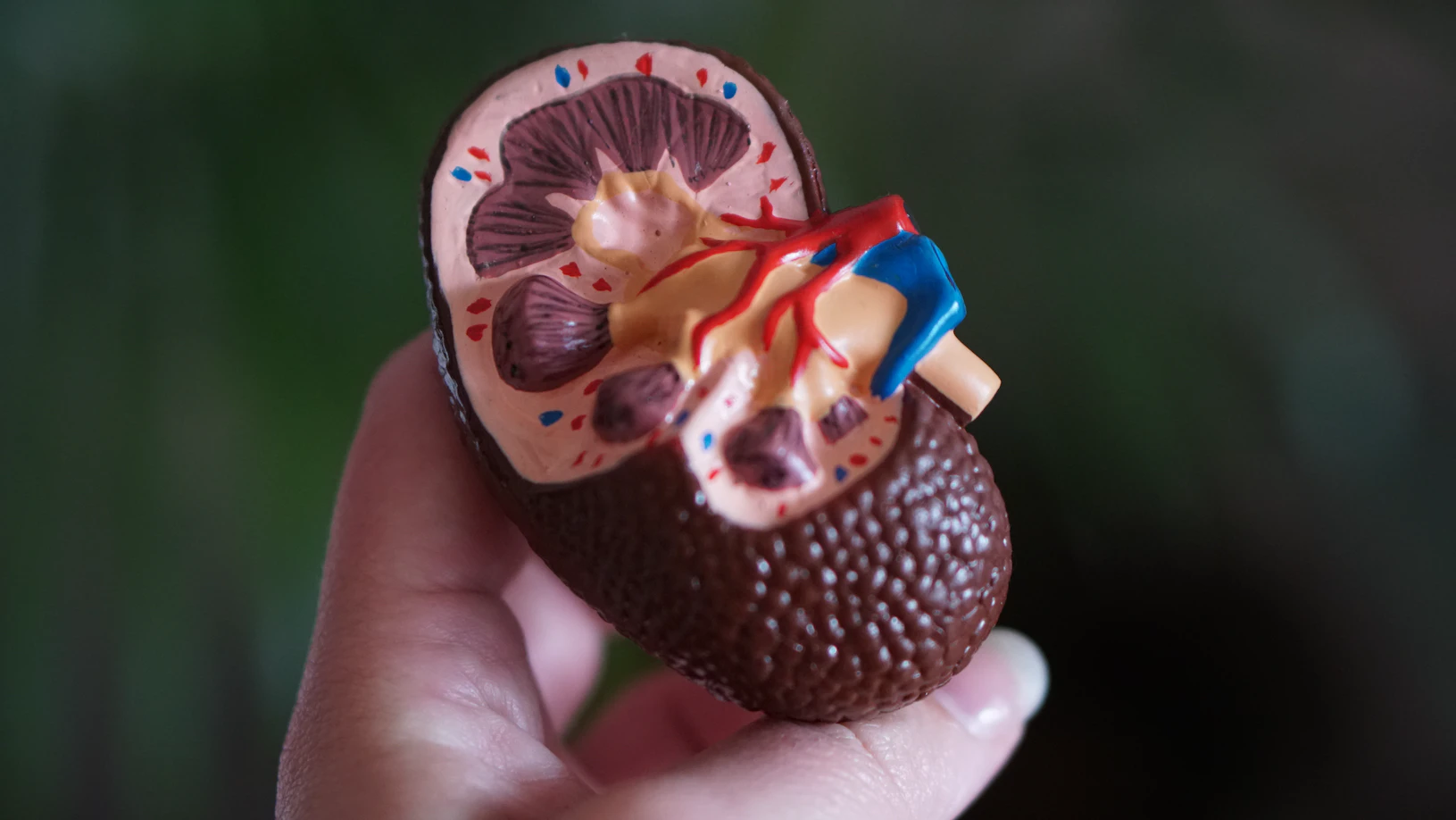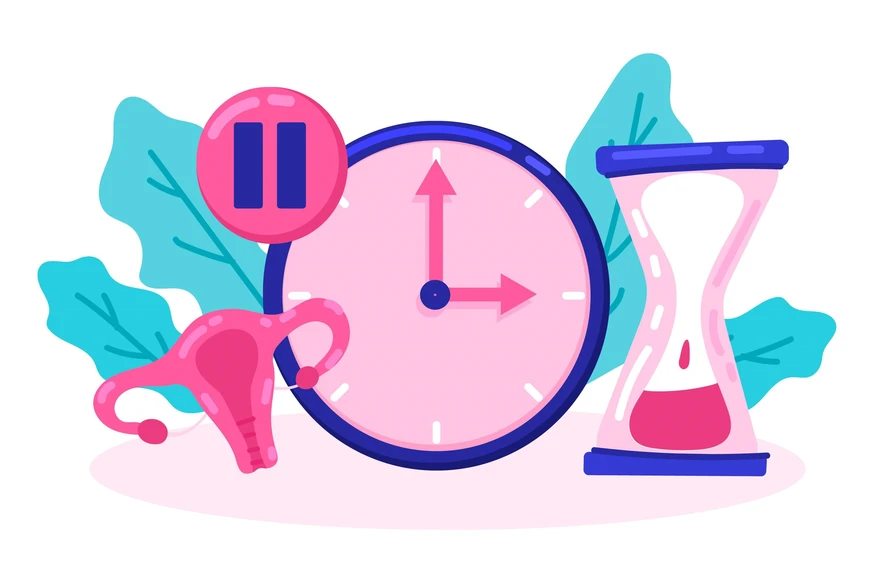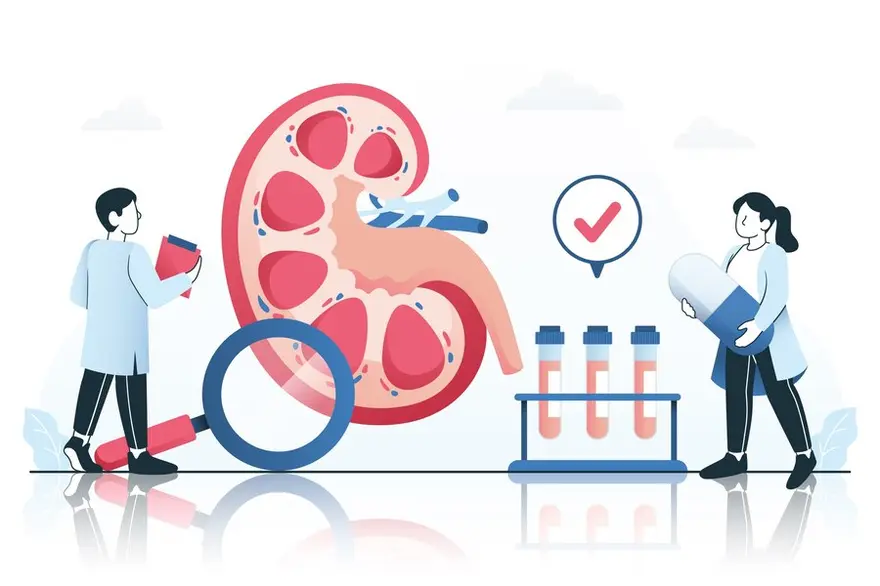Preventive Healthcare
What is Kidney Disease? All You Need To Know
3020 Views
0

Introduction
Chronic kidney diseases affect around 10% of the Indian population. Statistics show that close to 1 lakh cases of renal failure are reported every year. Kidney disease results from kidney damage, making them unable to carry out their functions. This damage can be caused due to high blood pressure, diabetes or other long-term health conditions. Kidney disease can also lead to other health problems, such as nerve damage, weak bones and malnutrition.
What is kidney disease?
Kidneys are the organs responsible for regulating your body’s pH levels, salt, potassium, and various functions. They are two bean-shaped organs that are usually the size of your fists. Your kidneys carry out three main functions: filtering excess water and waste out of the blood and creating urine. Kidney disease results from kidney damage, making it difficult for them to filter the blood as they should. Here you will understand more about the function of the kidneys and the causes, symptoms, types and treatment of kidney disease.
The longer you wait before treating this condition, the more chances it may result in total renal failure. In this case, you would need to undergo dialysis, a form of treatment that helps filter and purify your blood with the help of a machine. As there is no known cure for kidney failure, the individual will have to undergo dialysis for the rest of their life.
Types and causes of kidney disease
Here is a comprehensive kidney disease list that describes the different types and causes of kidney diseases so that you know the risk and the mode of action required for such conditions.
Chronic kidney disease
This is one of the most common types of kidney disease. It is a long-term condition that does not improve over time and can result from high blood pressure. This happens because of the pressure applied on the glomeruli (a network of tiny blood vessels in the kidneys that helps purify the blood). Over a period, the increased pressure on these can cause damage to these vessels, which in turn limits kidney function.
Ultimately the kidney function declines to the point where the kidneys cannot carry out their function correctly, causing the individual to need dialysis and, in more severe cases, a kidney transplant.
Diabetes is another major cause of chronic kidney disease. In this case, the increased sugar level in the blood causes the blood vessels in the kidneys to get damaged over time. The kidneys cannot clean the blood properly, so the body can get overloaded with various toxins.
Kidney stones
Another common problem is the presence of kidney stones. This disease occurs because substances like minerals crystallise in the kidneys and form solid masses, also known as stones. When urinating, these stones are often dispelled from the body, but the process can be significantly painful.
Polycystic kidney disease
This genetic disorder often results in the growth of multiple tiny sacs of fluid known as cysts in the kidneys. These cysts can interfere with the kidneys' optimum functioning, resulting in kidney failure. Note that individual kidney cysts are relatively common among individuals and can be harmless. It is only polycystic kidney disease that can be life-threatening.
Glomerulonephritis
Glomerulonephritis is a kidney disease in which the glomeruli get inflamed. This is usually caused due to drugs, infections or congenital abnormalities. It usually gets better on its own.
Urinary tract infections
Urinary tract infections are caused because of bacterial infections in the urinary system. This kind of infection is usually seen in the urethra or bladder. They are easy to treat but, if left untreated, can also cause kidney disease.
symptoms of Kidney disease
Kidney diseases may go unnoticed as their symptoms are less noticeable than other diseases. However, if left without treatment, it can have severe consequences. Here are a few early kidney disease symptoms.
- Fatigue
- Trouble sleeping
- Muscle cramps
- Dry and scaly skin
- Swelling in ankles and feet
- Poor appetite
- Morning puffiness around the eyes
- Frequent urination
- Difficulty concentrating
Severe kidney disease symptoms may include:
- Nausea
- Vomiting
- Changes in the output of urine
- A sudden rise in your potassium levels
- Pericardium inflammation
- Decrease in sex drive
- Fluid retention
- Anaemia
Treatment for kidney disease
Treatment for any kidney disease involves trying to control the underlying cause of the
disease. The treatment options include:
Medications
Your doctor might prescribe several medications in the case of kidney disease based on the cause, these include:
- Angiotensin-converting enzyme inhibitors or angiotensin receptor blockers help lower blood pressure
- A phosphate if your kidneys are having trouble eliminating phosphate
- A diuretic to eliminate the excess fluid build-up
- Medicines that help reduce cholesterol levels
- Vitamin D and calcitriol for bone preservation
- Erythropoietin helps build red blood cells in patients with anaemia
Changes in diet and lifestyle
Those with reduced kidney function need to preserve the remaining function so that it can last for longer. Here are a few diet and lifestyle changes you will have to make in your diet and lifestyle
- Make regular doctor visits
- Manage your blood sugar levels in case of diabetes
- Avoid the consumption of painkillers as other non-essential medicines
- Choose a kidney-friendly diet with limited proteins, sodium and potassium
- Be more active
- Don't smoke
- Try and remain at a weight that is healthy for you
Dialysis
As there is no known cure for kidney disease your healthcare provider will suggest dialysis when you are in the end stages of kidney disease. There are two main types of dialysis:
- Hemodialysis: In this case, the blood is circulated through a device that helps get rid of excess waste products before the blood is sent back to the body.
- Peritoneal dialysis: Here a dialysis solution is placed directly into the abdomen with the help of a catheter. This solution absorbs the waste and can be removed using the same catheter before adding a fresh solution.
Book Kidney Function Test
Conclusion
The kidneys carry out the essential job of waste and excess fluid from the body. When your kidneys stop functioning optimally, they can cause several health issues. Regular health checkups and blood tests help to keep track of your health. You should go the extra mile to get blood and urine tests done if you suspect you may have kidney disease.
Metropolis Labs helps their customers with at-home sample collection so that you can keep up with your health from the comfort of your home. Metropolis Healthcare assures accurate results within 48 hours of sample collection. Check out the entire list of diagnostic tests provided to find the ones you need.
 Home Visit
Home Visit Upload
Upload














1701259759.webp)









 WhatsApp
WhatsApp